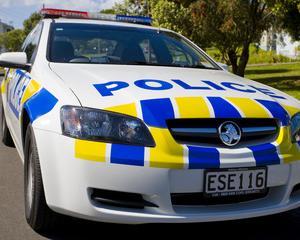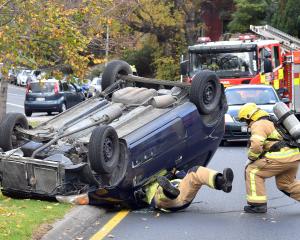The latest draft of Otago Polytechnic's drug and alcohol testing policy takes ''a sledgehammer to a problem that doesn't exist'', the Tertiary Education Union says.
Under the first draft of the policy, students and staff in every programme except business and IT could have been subject to random drug and alcohol testing.
Polytech organisational development director Matt Carter said that had been pared back.
The most recent version of the new policy says students or staff could be tested if they were involved in "safety sensitive activities''.
That usually meant "operating machinery or a requirement to make really high-risk decisions'', Mr Carter said, but he admitted the new model could still allow testing for a significant segment of the polytech population, depending on what they were doing.
"Every programme has risks at different times.''
He said random testing, a controversial element of the previous draft, was also gone.
Students and staff would be tested after an accident, or if staff had "reasonable cause'' to suspect they were impaired by drugs or alcohol, he said.
Students and staff would also be allowed to refuse "reasonable cause'' testing once with no repercussions, although their name would be recorded.
Post-accident testing was mandatory.
If a student or staff member was tested for drugs or alcohol and did not receive a definitively negative result, they would be stood down from "safety sensitive areas'' pending further testing.
If further testing was also non-negative, the person would be banned from safety sensitive areas until they tested negative, and offered counselling. They would also undergo testing for 12 months following the first test, and face disciplinary action for any non-negative results.
Mr Carter said the policy was ''not about catching people out, it's about making sure it's a safe place to work and learn''.
"A lot of industries have a growing expectation that people will be subject to policies like this ... it's up to us to set the standard.''
But TEU organiser Kris Smith said the new version of the policy was still "far too broad''.
"You could describe absolutely every activity as having an element of risk,'' she said.
And the post-accident testing included in the new draft policy ‘‘amounts to random testing'', she said.
"Not all accidents or incidents lead to a reasonable suspicion of impairment,'' Ms Smith said.
New Zealand Union of Students' Associations president Rory McCourt was more positive about the policy, calling it "a huge improvement on last time''.
The association thought it was "good that [drug and alcohol testing] mirrors the industry as much as possible''.
"Students should have an expectation about what kind of level of rigor they're going to be put through.''
''But the polytech's plan to test students and staff based on the activity they were involved in, rather than the academic programme, was problematic.
"[The] sector by sector approach is one that we favour ... aligning with industry is much more feasible,'' Mr McCourt said.
Advertisement













